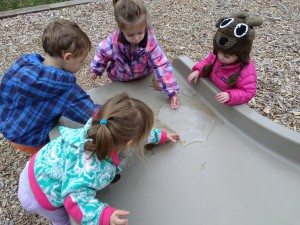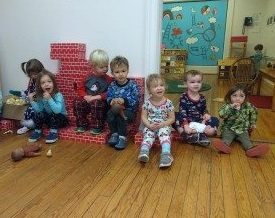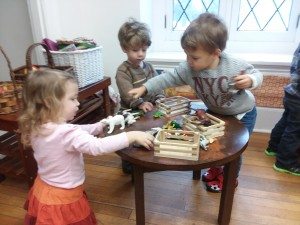What does a veteran elementary and early education teacher do over Winter Break?
- Fly to Ireland for the very first time to spend eight days exploring the Emerald Isle
- Pack one book: Do Parents Matter? by Robert LeVine and Sarah LeVine
I reveled in Ireland’s beauty and history, and its friendly and gracious people – truly, every shopkeeper and pub waiter, every bus driver and ticket-taker, had a smile and friendly word, and often a story or two to make us laugh.
And I also read the book!
The LeVines, respectively a professor of education and human development and an anthropologist, have spent a lifetime studying child-rearing practices in diverse cultures across our globe. In general, they have found that children can be happy and healthy in a wide range of conditions, and guided by a wide range of parenting practices.
In my new professional challenge as a teacher of two-year-olds, this book was most helpful to me by opening my eyes further to this point: “The behavior of toddlers in highly responsive to their parents’ priorities.” How do we use a Reggio-inspired philosophy to bring cohesion to this diverse group? How do our school priorities influence the behavior of these young children entrusted to our care?
As I traveled around Ireland, I thought about how Irish children observe and hear, from infancy, the adults in their lives engaging with strangers with politeness, humor, and friendliness. They also attend schools financed by the government and managed by the Church, with all of its attendant values. They share a strong and clear historical identity.
Before heading to Ireland, as I reflected on my first months of life with our B2 classroom, I felt truly in awe of how strongly the children had become a community. They announce the arrival of their classmates with gusto, greet each another with a hug or at least a smile, notice when somebody is sad, and offer a truck or an animal to share.
In October, when I first observed a group of them engaged in interactive play, initiated on their own, I was amazed. “This is not typical two-year-old behavior,” I thought. But then I observed it more and more – in pairs and in small groups, the children were “cooking” together, hiding together, driving to the beach together, coordinating their movements as they ran with a hoop, assigning family roles, and on and on.
I thought, “Given the opportunity and the encouragement, two-year-olds are capable of so much!”
I was struck by how quickly the children’s sense of class community developed, even at this young age. I asked myself, “What have we done in this brand new Program for Two-Year-Olds that has promoted this community spirit? How have we conveyed our priority of ‘Community’ to these very young children?”
We arrange the day’s routines and the environment to support opportunities for cooperative play. A round table is regularly covered with communal paper, where the children gather and experiment together with paints and other art materials. A comfy floor cushion is large enough for four children to sit together with books. A dollhouse sits on a table where children can access it from both sides, and play opposite each other. Percussion instruments are usually used on a round rug, which encourages circle movement and communal drumming.
Over the first weeks of school we ventured out on daily walks around our campus. These walks had no purpose other than for everybody to explore their new environment together. The children gradually learned to travel as a group. The quick ones had to wait for the slower ones. The ones who loved to wander learned to come when called. When somebody fell, the others noticed and announced it with concern. When one child discovered something fun or interesting – a pile of leaves, a bench to climb on, a fence with holes – classmates gathered. 
It’s not always easy – to wait, to share, to disagree. But through hours of shared experiences, and with encouragement to be caring, friendly, and inclusive, these two-year-olds have often pushed past the comfortable realm of “parallel play” and into the often messy but rewarding experience of group play and teamwork.
Just as the Irish children absorb their cultural heritage of helpful and gracious hospitality, our two-year-old children have made a strong start in absorbing BCD’s priority of a supportive community.

